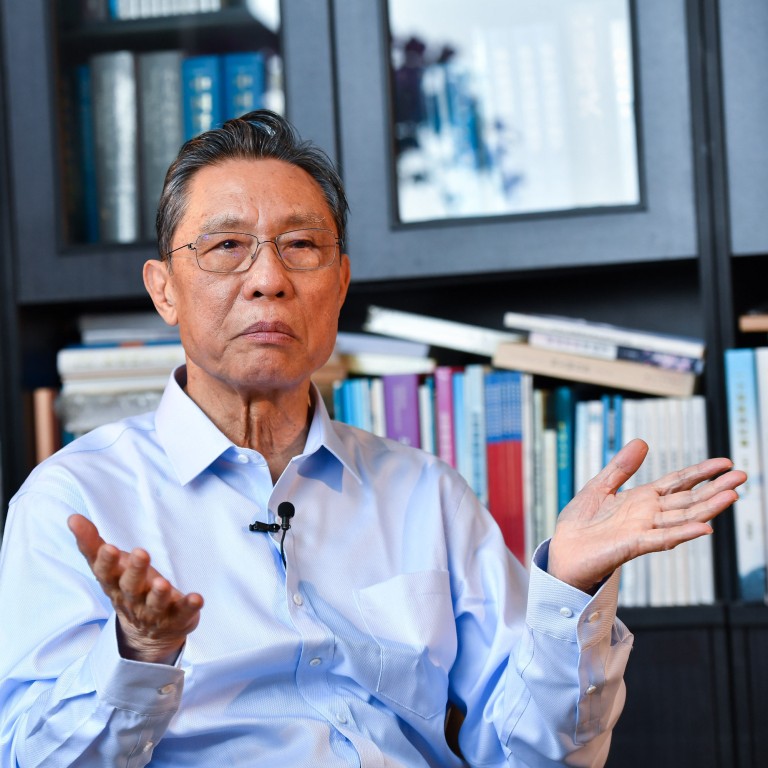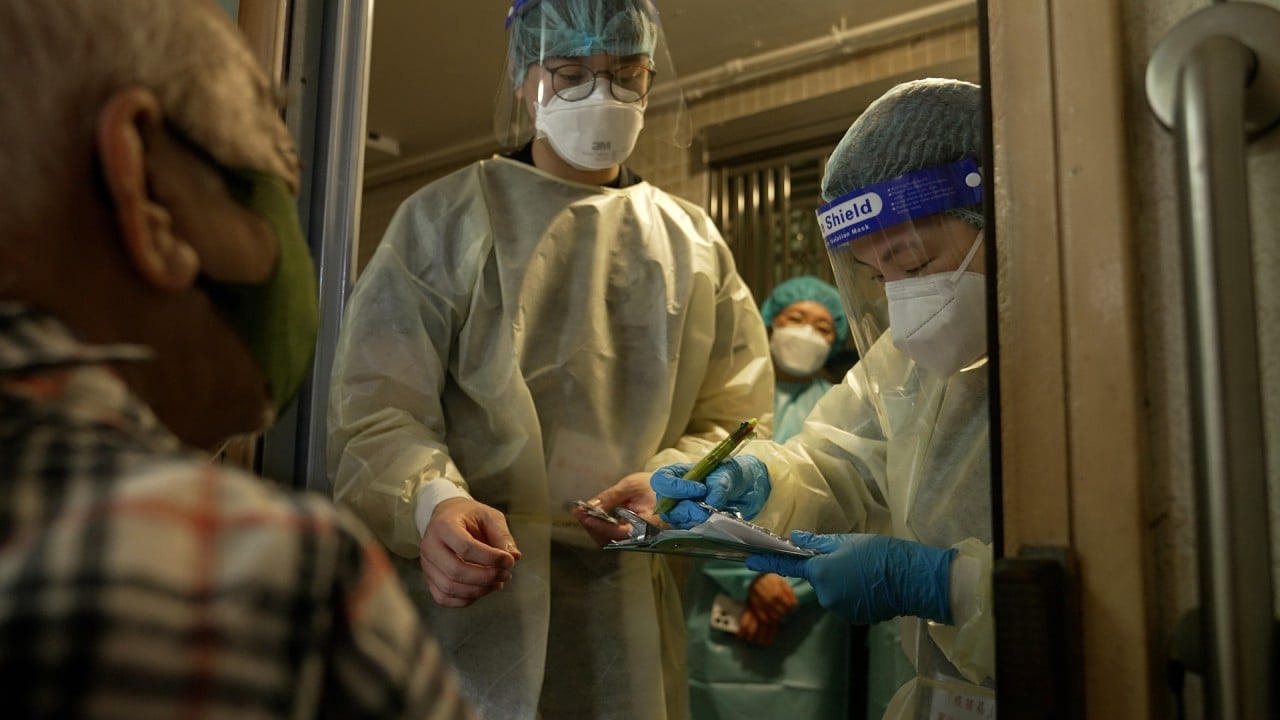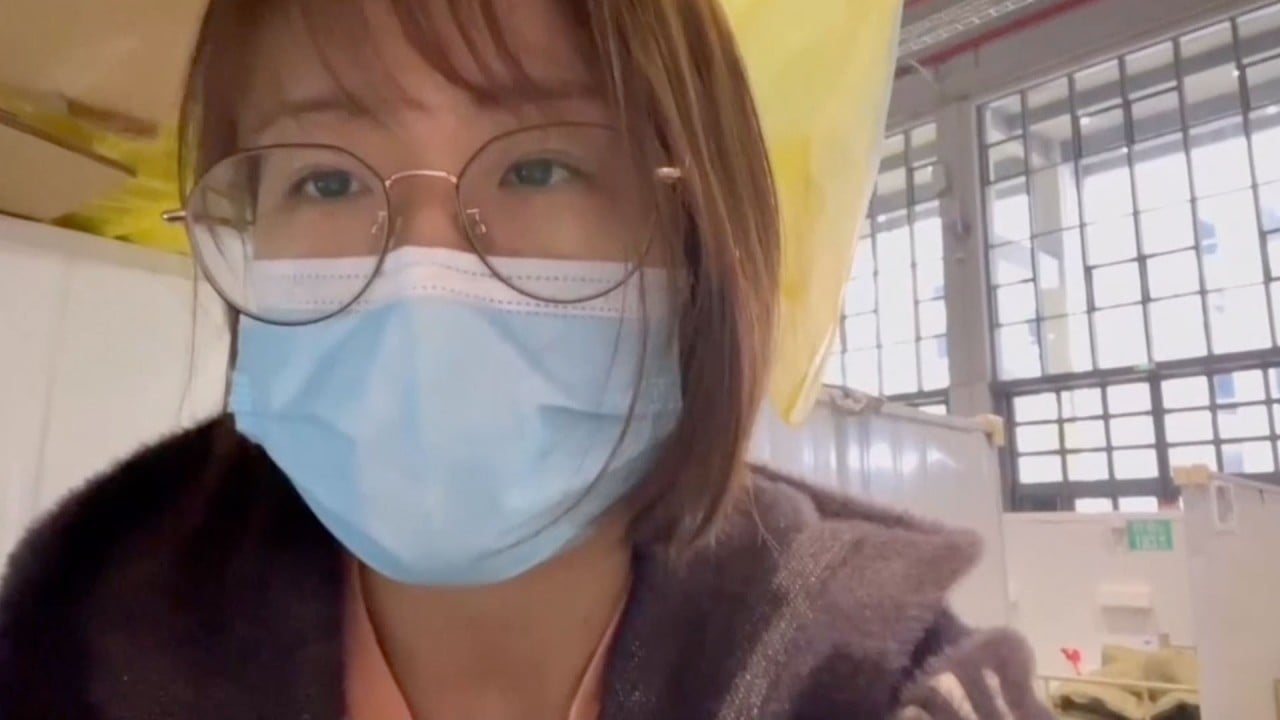
Coronavirus: China’s top expert writes of eventual return to normal, but article deleted at home
- ‘Prolonged dynamic zeroing cannot be pursued in the long run,’ Zhong Nanshan and Guan Weijie write in National Science Review
- China is fine-tuning Covid-19 border restrictions to shorten quarantine for incoming travellers to eight cities
The editorial titled “Strategies for reopening in the forthcoming Covid-19 era in China” was published in the English-language National Science Review journal on April 6. A Chinese translated copy of the article was published on mainland news sites on Monday but has since been deleted.
“China needs to reopen so as to normalise socio-economic development and adapt to global reopening. Prolonged dynamic zeroing cannot be pursued in the long run,” Zhong wrote with co-author Guan Weijie, an associate researcher with the State Key Laboratory of Respiratory Disease in Guangzhou.
They said the community-based dynamic zero-Covid policy had been key in minimising Covid-19 cases and deaths in mainland China.
“The rapid roll-out of vaccinations, as well as herd immunity, have formed the fundamentals of the ‘total opening’ of some developed countries. This, however, does not necessarily justify rapid and total opening in mainland China,” they wrote.
“Omicron confers a considerably higher mortality risk than seasonal influenza, and would likely result in social instability and the emergence of other novel variants with a greater infectivity.”
They said the country should also use rapid antigen tests to identify cases in a timely manner and should treat patients with Covid-19 medications and neutralising antibodies to reduce the risk of infection progressing to critical illness and death.
China pledges ‘strictest, most resolute’ measures to halt Omicron spread
The scientists wrote in the journal that more scientific studies on the coronavirus latency and recovery periods could help policymakers decide the minimal quarantine period and how best to manage reinfection after a patient is discharged from hospital.
They added that the country could carry out pilot tests in designated areas and adjust policies according to the epidemic characteristics of imported cases to “verify the outcomes of the transition towards safe and orderly social reopening in China”.
The four-week pilot scheme – also covering Chengdu, Dalian, Ningbo, Suzhou and Qingdao – was launched on April 11 to cut quarantine from 14 to 10 days for incoming travellers and close contacts of Covid-19 patients.
People in isolation will have six PCR and six rapid antigen tests in that period, which also includes seven days of health monitoring at home.
No easy task to reopen mainland border, admits Hong Kong leadership candidate
The eight cities were chosen based on the number of incoming flights, the quantity of imported goods and Covid-19 control capacity, according to a document outlining the trial.
As for local outbreaks, lockdowns of quarantined areas could be lifted after 10 consecutive days without a positive test result, instead of two weeks as previously required, it said.
Authorities would analyse and compare the isolation and test information of incoming travellers and close contacts who had tested positive for the coronavirus since December to assess trial results.



